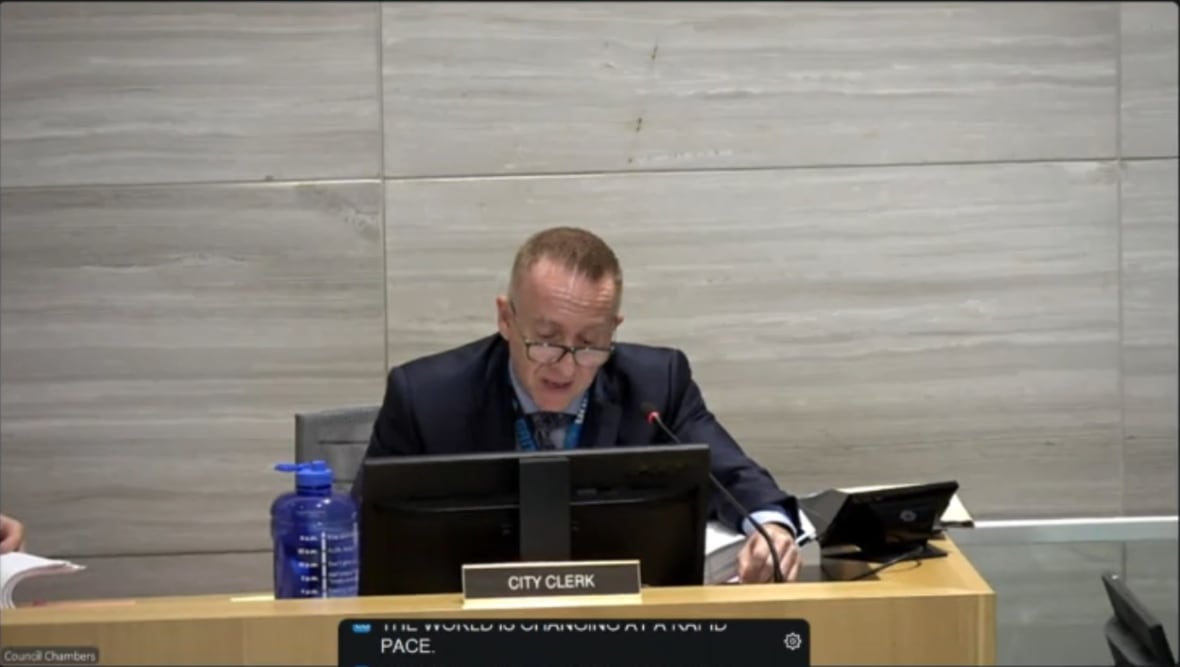Windsor adopts new flag-raising policy after previous draft protested by 2SLGBTQ+ community
The previous draft said the city would not grant flag-raisings or issue proclamations

Windsor city council has adopted a new policy on flag-raisings, proclamations and building illuminations after deferring a vote on a previous draft due to protests from members of the 2SLGBTQ+ community.
Under the new policy, Windsor will continue to grant flag-raising requests, but only to organizations that are directly related to the city through a funding or partnership agreement, and/or only for events that correspond with days of awareness, celebration, importance, commemoration or promotion that are recognized by the province or federal governments.
"Based on this policy change, 99 per cent of the flag raisings are going to continue," Mayor Drew Dilkens told council.
"But what we're doing here is we're sensibly recognizing that the people at City Hall, the Multicultural Council of Windsor and Essex County … they're not experts in diplomatic affairs."
The city, he said, wants to avoid a situation where it agrees to perform a symbolic gesture that could complicate diplomatic relations, such as by approving a flag-raising for a group with terrorist ties.
Council had originally considered a policy at its May meeting that said it would not grant flag-raisings or issue proclamations.
Councillors question need for policy changes
But several people protested the move, particularly members of the 2SLGBTQ+ community, who emphasized the importance of raising the Pride flag during Pride month.
Some members of the community appeared before council on Monday to express satisfaction with the new policy.
"Thank you for your hard work that you put in to respect diversity and representation for all groups in this city, including my community," Mel Lucier said

But three councillors objected to the policy changes, questioning why they were necessary in the first place.
They also expressed concerns about their impact on marginalized groups and about the decision to defer to higher levels of government when it comes to deciding whose flags to raise.
"Federal governments change, and provincial governments change," said Coun. Fred Francis. "And we only have to look down south to see how things can change in the direction we don't agree with."
Coun. Kieran McKenzie and Coun. Angelo Marignani both said they were concerned about excluding marginalized groups and asked why the previous policy needed changing.
City clerk Steven Vlachodimos said the city is fielding a growing number of complaints from people demanding to know why it's recognizing certain groups or events — and it needs a more detailed policy to help it answer those questions effectively.
"We're hearing it further [through] a phone call or through comments that come electronically into our office," Vlachodimos said.
"Why did you approve this? You know this is a political movement. This is a religious movement. You know this is against the policy. It's a geopolitical movement."
International affairs are rapidly changing, he said.
And other municipalities have tightened up their flag and proclamation policies in response.
"The paramount concern that we have is a reputational risk," Vlachodimos said.
"We've seen it in other municipalities where they've approved something that has created national headlines, and that's something we want to avoid here."
Coun. Jo Anne Gignac was one of the councillors who supported the motion, reminding her colleagues that they are free to change the policy at any time if they find a problem with it.
"How many times have we sat around this horseshoe and said to each other and then verbalized to administration that we need to communicate more clearly what's required?" she asked.
"That's what administration, I think, is trying to do here."
The city has received a total of 425 flag-raising, proclamation and building illumination requests since 2022, according to a memo from staff to council.
Of those, 346 were approved, 79 were denied and one was withdrawn.

